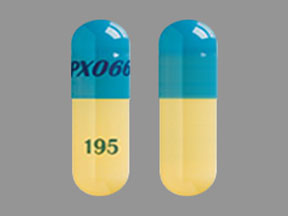Rytary Disease Interactions
There are 13 disease interactions with Rytary (carbidopa / levodopa).
- Glaucoma
- Cardiac disease
- Neuroleptic malignant syndrome
- Psychoses/depression
- Glaucoma
- Liver/renal
- Melanoma
- Reactive airway disease
- Depression
- Sleep disorders
- Hypotension
- Psychosis
- GI bleeding
Carbidopa (applies to Rytary) glaucoma
Major Potential Hazard, Moderate plausibility. Applicable conditions: Glaucoma (Narrow Angle)
Carbidopa-levodopa products are contraindicated in patients with narrow-angle glaucoma.
Dopamine agonists (applies to Rytary) cardiac disease
Major Potential Hazard, Low plausibility. Applicable conditions: Cardiovascular Disease
Cardiac irregularities occur infrequently in patients on dopamine agonists. The initial administration and titration is recommended to occur under close cardiac monitoring in a facility equipped for intensive cardiac care. Adverse cardiac affects may include palpitation, sinus tachycardia, ventricular tachycardia, extrasystole, atrial flutter or fibrillation, or block of AV conduction.
Dopamine agonists (applies to Rytary) neuroleptic malignant syndrome
Major Potential Hazard, Low plausibility.
The use of dopamine agonists is contraindicated in patients with neuroleptic malignant syndrome (NMS). NMS is characterized by hyperthermia, muscle rigidity, altered mental status, irregular pulse or blood pressure, tachycardia, and diaphoresis. The syndrome may rarely be precipitated by abrupt discontinuation of the dopamine agonist.
Dopamine agonists (applies to Rytary) psychoses/depression
Major Potential Hazard, Moderate plausibility. Applicable conditions: Psychosis
The use of dopamine agonists has been associated with psychiatric effects such as hallucinations, psychosis, confusion, anxiety, mania, hypomania, depression, rapid mood cycling, nightmares, and hypersexuality. Therapy with dopamine agonists should be administered cautiously in psychotic patients and all patients should be carefully observed for development of depression and suicidal tendencies.
Levodopa (applies to Rytary) glaucoma
Major Potential Hazard, High plausibility. Applicable conditions: Glaucoma/Intraocular Hypertension
The use of levodopa is contraindicated in patients with acute closed-angle glaucoma. Levodopa (with or without carbidopa) may be used in patients with open-angle glaucoma who are receiving appropriate therapy.
Levodopa (applies to Rytary) liver/renal
Major Potential Hazard, Moderate plausibility. Applicable conditions: Liver Disease, Renal Dysfunction
The pharmacokinetics of levodopa have not been studied in patients with hepatic or renal impairment. Therapy with levodopa should be administered cautiously in patients with liver or disease. Periodic monitoring of hepatic and renal function is recommended during extended therapy.
Levodopa (applies to Rytary) melanoma
Major Potential Hazard, Moderate plausibility. Applicable conditions: Skin Cancer
The use of levodopa is considered by manufacturers to be contraindicated in patients with a history of melanoma or in patients with suspicious, undiagnosed skin lesions. Levodopa reportedly may activate malignant melanoma, although some investigators have found a causal relationship to be tenuous.
Levodopa (applies to Rytary) reactive airway disease
Major Potential Hazard, Low plausibility. Applicable conditions: Asthma, Chronic Obstructive Pulmonary Disease
Because of the risk of bronchospasm, use of levodopa in patients with asthma, COPD, or other chronic underlying lung disease is not recommended.
Carbidopa (applies to Rytary) depression
Moderate Potential Hazard, Moderate plausibility.
Caution and observation is recommended when treating patients with carbidopa, as depression with concomitant suicidal tendencies may develop or be exacerbated.
Carbidopa/levodopa (applies to Rytary) sleep disorders
Moderate Potential Hazard, Moderate plausibility.
Patients treated with products containing carbidopa and levodopa report excessive somnolence and falling asleep while engaged in daily activities, sometimes with no warning sign of drowsiness. Advise patients about the risks, especially those suffering from sleep disorders or using concomitant sedating medications.
Dopamine agonists (applies to Rytary) hypotension
Moderate Potential Hazard, Moderate plausibility.
Dopamine agonists may impair the systemic regulation of blood pressure, with resultant orthostatic hypotension at any time, but especially during dose escalation. Additionally, patients with Parkinson's disease may have an impaired capacity to respond to an orthostatic challenge. For these reasons, patients with Parkinson's disease (or restless legs syndrome) who are being treated with dopaminergic agonists typically require careful monitoring for signs/symptoms of orthostatic hypotension, especially during dose escalation, and should be advised of this risk.
Dopaminergic antiparkinsonian agents (applies to Rytary) psychosis
Moderate Potential Hazard, Moderate plausibility.
Ordinarily, patients with major psychotic disorder should not be treated with dopaminergic antiparkinsonian agents, because of the risk of exacerbating psychosis. Hallucinations and psychotic-like behavior have been reported with dopaminergic medications. In addition, certain medications used to treat psychosis may exacerbate the symptoms of Parkinson's disease and may decrease the effectiveness of these drugs. The use of bromocriptine in patients with severe psychotic disorders is not recommended.
Levodopa (applies to Rytary) GI bleeding
Moderate Potential Hazard, Low plausibility. Applicable conditions: Gastrointestinal Hemorrhage
The use of levodopa, especially in combinations with carbidopa, has been associated with an increase in the frequency of gastrointestinal hemorrhage. Therapy with levodopa should be administered cautiously in patients with a history of peptic ulcer disease or gastrointestinal hemorrhage.
Switch to professional interaction data
Rytary drug interactions
There are 520 drug interactions with Rytary (carbidopa / levodopa).
Rytary alcohol/food interactions
There is 1 alcohol/food interaction with Rytary (carbidopa / levodopa).
More about Rytary (carbidopa / levodopa)
- Rytary consumer information
- Check interactions
- Compare alternatives
- Pricing & coupons
- Reviews (30)
- Drug images
- Side effects
- Dosage information
- Patient tips
- During pregnancy
- FDA approval history
- Drug class: dopaminergic antiparkinsonism agents
- En español
Related treatment guides
Drug Interaction Classification
| Highly clinically significant. Avoid combinations; the risk of the interaction outweighs the benefit. | |
| Moderately clinically significant. Usually avoid combinations; use it only under special circumstances. | |
| Minimally clinically significant. Minimize risk; assess risk and consider an alternative drug, take steps to circumvent the interaction risk and/or institute a monitoring plan. | |
| No interaction information available. |
Further information
Always consult your healthcare provider to ensure the information displayed on this page applies to your personal circumstances.


